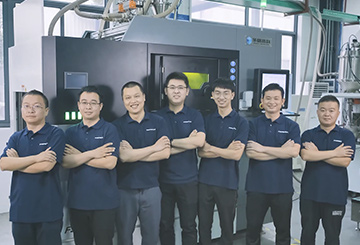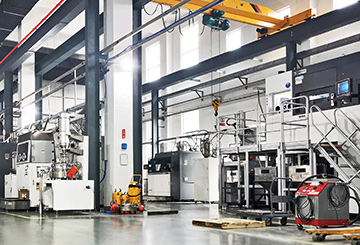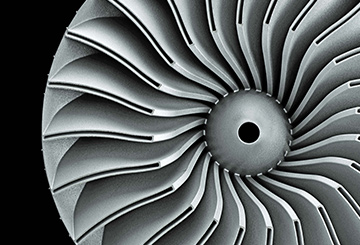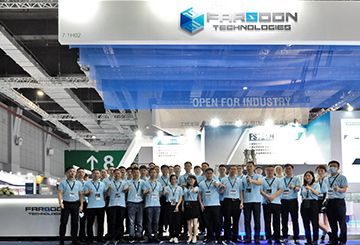In the realm of consumer and sporting goods, the application of 3D Printing has brought consistent attention on the product innovation and customization. However, like many other existing technologies in the market, it has to stand the test of “efficiency” and “cost” when it comes to higher volume series manufacturing.

Figure 1: Golf club head product. Image courtesy of Futai Technology
Established in 2021, Futai Technology has been dedicating its efforts to development of titanium sporting equipment with annual production capacity reaching one million units across various castings. Aside from the comprehensive conventional manufacturing set up, Futai Technology has further incorporated seven medium-sized metal additive manufacturing machines including the Farsoon FS200M and FS273M into its operations, specifically for the series production of titanium golf club heads.

Figure 2: Golf club head products showcased at TCT Asia 2023. Image courtesy of Futai Technology
“We are glad to see the metal 3D printed golf club heads well accepted by the sporting and athletic customers, and now found their way into many global markets like Japan, Korean, U.S. and Europe.” says Mr. Changhua Xie, deputy general manager of and head of the additive manufacturing at Futai Technology. “With the increasing numbers of production orders, all of Farsoon 3D printers are operating at an impressive machine uptime exceeding 90%; We are able to deliver more than 15,000 3D printed titanium golf club heads annually to our customers.”
When asked about how metal 3D printing revolutionized the sporting products manufacturing, Mr. Xie has shared three key aspects:
01 Efficiency: accelerated R&D cycle
In the realm of sporting goods, the accelerated design-production cycle will rapidly raise the brand’s responsiveness in the market. Additive manufacturing is able to create high quality, rapid prototypes which perfectly aligned with the pace of product design. The conventional approach to manufacturing golf club heads involves multiple stages, including design, shaping, mold creation, and part production – which typically spans around 45 days; with additive manufacturing the cycle takes just one week.
02 Design flexibility for improved performance
Metal 3D printing also offers greater design flexibility and innovative solutions with the advanced manufacturing capabilities compared to conventional technologies; which help Futai Technologies stands out from the competition:
● Improved performance: Incorporating aerodynamics and gravitation into the design of golf club heads, golfers can achieve faster and easier swings, with improved shooting speed and carry distance. The innovative fade-proofing design is also incorporated for improved strike accuracy.
● Lightweight design: boasts superior strength, enhanced malleability and durability, 3D printed titanium golf club heads enables the creation of intricate structures target lightweighting.
● Customization: Featuring a one-of-a-kind “sound window” design, as well as a lattice structure crafted through 3D printing, it caters to an elevated sporting experience.

Figure 3: As-printed golf club head. Image courtesy of Futai Technology
03 Cost-efficiency manufacturing tool
Traditionally, mold production of a golf club head is time-consuming process and costs range from $2,500 to $3,000, with a service life of 8,000-10,000 times. By utilizing Farsoon’s FS200M platform, nine units of golf club heads can be produced in a single batch – results in savings of over 70% in R&D expenses.
When it comes to series manufacturing, the 3D printed titanium golf club heads also showcase good profitability; considering manufacturing factors including lead time, efficiency, mold-making cost, labor and material.
In today’s manufacturing landscape, all industries are experiencing forward-looking transformations. Farsoon remains committed to leveraging the potential of 3D printing in the consumer goods sector; pioneering the series manufacturing in additive technology.












